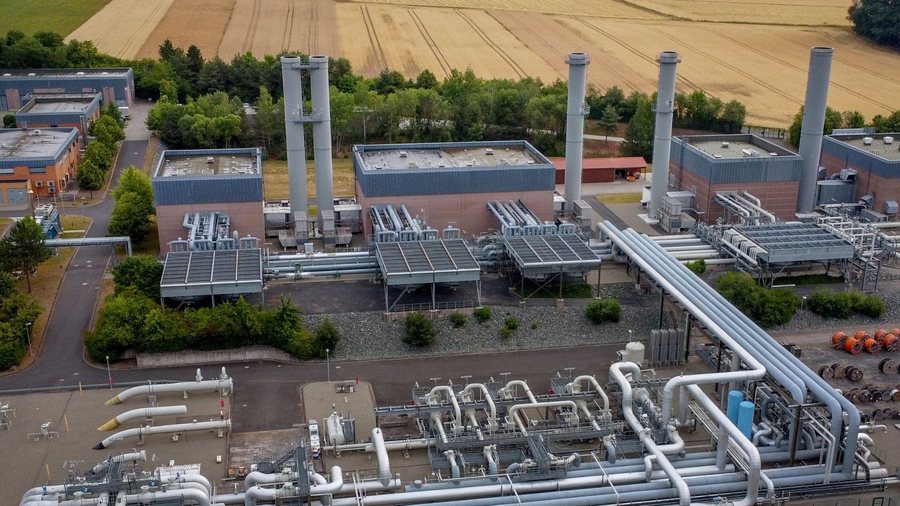Report/ Europe's plans to continue relying on gas endanger climate commitments!

Growing gas power across Europe threatens to jeopardize climate commitments and lock out fossil fuels for decades, a new report has found. The briefing from campaign group Beyond Fossil Fuels reveals that in total, European countries plan to add 80GW of new gas-fired power generation capacity - a 32 per cent increase on current capacity.
As countries position themselves as global climate leaders at COP29, it risks locking them into high-carbon energy systems. Beyond Fossil Fuels analyzed the current and future plans for fossil gas in the energy systems of six European countries: Italy, Germany, the United Kingdom, Bulgaria, Romania and Poland.
Three European countries are particularly dependent on fossil gas for electricity production - Italy, Great Britain and Germany. Half of the new additions are planned by these three countries, which are already responsible for 45 percent of Europe's total gas capacity. Governments from all three countries have pledged to decarbonise their energy sectors by 2035.
The UK has the most ambitious timeline yet with a clean energy target of 2030. Last week the country's National Energy System Operator confirmed that this is achievable if gas power capacity is not expanded beyond what it was in 2023.
But Italy, the UK and Germany all lack any concrete plans to stop burning fossil gas in their more than 900 existing gas-fired power plants - let alone any new ones under development. Plans to build new gas capacity "severely undermine" the credibility of their ambitions, the conference said.
Poland, Romania and Bulgaria are jointly planning to increase their gas plant capacity from 9 to 24 GW. Beyond Fossil Fuels claims many of these projects are being subsidized with taxpayers' money or EU funding intended to help countries "modernize" their energy systems and make their economies more "sustainable". .
In 2023, fossil gas produced 24 percent of Europe's electricity, 17 percent within the EU. Only a small part of the countries Bosnia and Herzegovina, Montenegro, Luxembourg, Kosovo and Cyprus do not have any operational gas power plants.
Of the 855 European gas-fired power plants in the Beyond Fossil Fuels database, only four have retired as of January 2023. Only seven are officially set to close by 2035, the deadline by which the International Energy Agency says countries developed must decarbonize to stay in the 1.5C warming pathway.
The conference also reveals a significant under-investment in the solutions needed for a functional energy system based on renewable resources, such as electricity grids or storage. Instead, he claims, this money is being poured into gas exploration and extraction along with infrastructure such as pipelines and terminals.
Beyond Fossil Fuels says these projects risk deepening Europe's dependence on fossil fuels imported by hostile regimes, while diverting critical funding from renewables, grids and storage.

American companies worried if China retaliates to fight Trump!
With President-elect Donald Trump's trade and foreign policy team taking a tough stance on China, US companies are increasingly concerned that a tough......

35 years since the fall of the Berlin Wall - The values of 1989 and today's challenges of democracy
The Economist Germany celebrated on Saturday the 35th anniversary of the fall of the Berlin Wall, which for decades divided West and East Germany. The fall......

Turkey fines Amazon with 2 million lira for data breach!
Turkey's Personal Data Protection Board (KVKK) has fined Amazon.com, launching new gaming platform Twitch, 2 million liras ($58,000) for a data breach, the......

How much income goes to rent for minimum wage citizens in Europe?
"Housing, water, electricity and gas" accounted for the largest share of household expenditure in the EU. In 2022, almost a quarter of all household......

The Dutch government avoids collapse after the resignation of the secretary of state!
The Dutch government dominated by far-right leader Geert Wilders has survived - for now - a government crisis that centered on the resignation of the finance......

Gas prices rise after Gazprom stops deliveries to Austria!
Gazprom Export has announced that it will stop gas supplies to Austria after more than 50 years, from November 16. This follows Austria's largest fossil fuel......

China's Fertility Decline - Challenges and New Policies Aiming to Boost Fertility
China's efforts to raise birth rates must still address the underlying causes of their rapid decline, analysts point out. Although the country began easing......

Britain, £2bn for undersea cable - New link offers clean energy, reduces gas dependency
British energy regulator Ofgem has approved a £2 billion funding package to build around 200 kilometers of new submarine and underground cables linking......


















